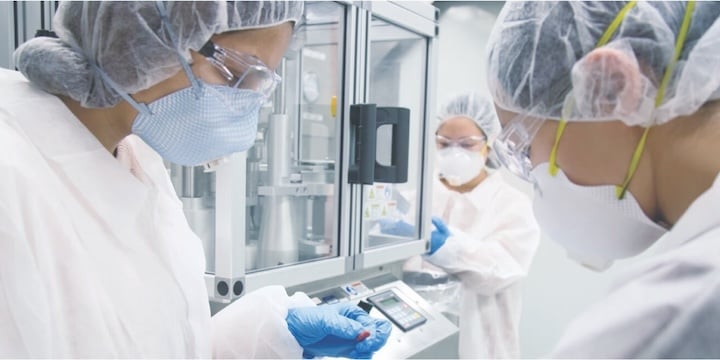These preformulation studies help determine factors like solubility, stability, and compatibility with other ingredients. By understanding how a drug behaves under various conditions, pharmaceutical developers can avoid potential issues in later stages. UPM Pharmaceuticals’ expertise in preformulation ensures that these early assessments lead to optimized drug performance and manufacturability, especially in their formulation and development services.
Article Contents
Key Objectives of Preformulation Studies
The objectives of preformulation studies are vital for ensuring that a drug’s physical and chemical properties are fully optimized, enhancing safety, efficacy, and manufacturability. By conducting thorough preformulation stability studies, pharmaceutical developers can identify potential challenges early in the drug development process, minimizing the risk of costly delays and failures during later stages like clinical trials and scale-up.
These early investigations help tailor the drug’s formulation to meet regulatory standards, ensuring the final product is both effective and commercially viable. At UPM Pharmaceuticals, we provide expert preformulation services, helping clients streamline their formulation and development processes.
Here are the key objectives that drive successful preformulation development:
Solubility
One of the most critical factors for drug efficacy is its solubility, which directly impacts bioavailability. Preformulation studies evaluate how well a drug dissolves in various solvents, from aqueous solutions to organic solvents. By optimizing solubility, drug developers can improve absorption rates, ensuring that the active pharmaceutical ingredient (API) is effectively delivered to the body.
Poor solubility can reduce therapeutic effectiveness, making it essential to identify the best formulation strategies early on. UPM’s pharmaceutical preformulation expertise enables precise solubility assessments, paving the way for improved bioavailability and clinical success.
Polymorphism
Many drugs can exist in multiple crystalline forms, a phenomenon known as polymorphism. Each polymorphic form can have distinct physical and chemical properties, such as solubility, stability, and dissolution rate. Identifying and characterizing these polymorphic forms is essential because even minor variations in crystalline structure can affect the drug’s overall performance.
In preformulation development, our team at UPM focuses on selecting the optimal polymorph to ensure that the drug maintains consistent performance during production, storage, and patient use.
Preformulation Stability Studies
Stability testing is a cornerstone of drug development, as it determines how a drug behaves under different environmental conditions like temperature, humidity, and light. Preformulation stability studies are designed to predict the drug’s shelf life and ensure it remains effective and safe over time.
By conducting these early tests, UPM helps identify the most stable formulations, allowing for adjustments before large-scale manufacturing. Our expertise in preformulation stability studies ensures that the drug remains robust throughout its lifecycle, mitigating risks related to degradation or loss of potency.
Excipient Compatibility
A drug's interaction with excipients—the inactive substances used to aid the formulation—can have a significant impact on its efficacy, stability, and manufacturability. Incompatibilities between the drug and excipients can lead to reduced potency, faster degradation, or even adverse reactions.
During preformulation studies, excipient compatibility testing is performed to identify the best combinations of ingredients, ensuring that the drug formulation remains safe, stable, and effective. UPM Pharmaceuticals excels in conducting these evaluations, guiding clients toward optimal formulations that work harmoniously with both active and inactive ingredients.
Particle Size Distribution
The size of drug particles plays a critical role in various aspects of drug performance, including absorption, dissolution rate, and manufacturability. Fine-tuning the particle size distribution ensures that the drug can be effectively absorbed in the body and manufactured efficiently. Larger particles may dissolve too slowly, reducing bioavailability, while smaller particles may pose challenges during production.
UPM focuses on optimizing particle size early in the development process to strike the right balance between performance and manufacturing efficiency.
Through these key objectives, UPM Pharmaceuticals ensures that each drug product is thoroughly evaluated and optimized for successful commercialization. Our proven track record in preformulation stability studies helps clients achieve a smooth transition from development to commercial manufacturing services, minimizing risk and maximizing product efficacy.

Importance of Preformulation in Drug Safety and Efficacy
The importance of preformulation studies in drug development cannot be overstated, as they form the foundation for ensuring that a drug product is both safe and effective before entering clinical trials and mass production. These early investigations are critical for identifying potential challenges related to solubility, stability, and excipient compatibility, which could compromise the drug's performance during clinical stages or large-scale manufacturing. By addressing these issues early, pharmaceutical developers can avoid costly setbacks and ensure a smoother path to commercialization.
Preformulation studies focus on understanding the physicochemical properties of the drug molecule. This includes assessing how the drug behaves under various environmental conditions, such as different pH levels, temperature, and humidity, which are essential for predicting the drug’s shelf life and stability. Identifying potential degradation pathways, such as oxidation or hydrolysis, helps prevent failures in clinical trials and regulatory reviews.
By conducting pharmaceutical preformulation studies, UPM also aids in determining how a drug will behave when scaled up for commercial manufacturing services, reducing potential production issues that could arise during larger batch processes. This early intervention minimizes the risk of encountering unexpected complications in later development stages, ensuring that the drug can be produced efficiently and at scale.
Commercial Scalability
UPM Pharmaceuticals offers a vast range of services, including preformulation studies, that can help you scale your product for commercial sales. Watch this video to find out more.
FAQs About Preformulation Studies
The following FAQ section addresses common questions related to preformulation studies in drug development. Whether you're new to the concept or looking for deeper insights, we can help clarify the role of preformulation in creating safe, effective, and manufacturable drugs.
How does preformulation support commercial manufacturing?
Preformulation studies are foundational to ensuring a smooth transition from laboratory-scale development to commercial manufacturing services. By optimizing critical aspects like solubility, stability, and excipient compatibility, preformulation paves the way for efficient scale-up processes. For instance, understanding how a drug interacts with excipients helps avoid manufacturing complications, such as degradation or incompatibility during production. Additionally, these studies aid in determining the most appropriate manufacturing methods, ensuring that the drug can be produced consistently at a large scale.
What is the role of pH in preformulation studies?
The pH of a drug environment can significantly influence its solubility and stability. During preformulation studies, researchers assess the drug's behavior at various pH levels to mimic different biological environments, like the stomach (acidic) and the bloodstream (neutral to basic). This helps ensure that the drug remains effective across different body conditions. For example, testing at multiple pH values allows scientists to predict where in the gastrointestinal tract the drug will best dissolve and be absorbed.
How do preformulation studies assist in regulatory approval?
Preformulation studies generate vital data on a drug's physical and chemical properties, such as its stability, solubility, and compatibility with excipients. This information is crucial for compiling regulatory submissions to agencies like the FDA or EMA. Thorough documentation from preformulation ensures that the drug meets safety, efficacy, and manufacturability standards required by regulators, which can speed up the approval process.
Can preformulation studies predict the shelf life of a drug?
Yes, preformulation stability studies play a key role in predicting a drug’s shelf life. These studies test how environmental factors like temperature, humidity, and light affect the drug, helping developers identify potential degradation pathways. By understanding how the drug degrades, companies can establish proper storage conditions and packaging to maintain its efficacy throughout its intended shelf life.
What types of analytical techniques are used in preformulation studies?
A variety of advanced analytical techniques are employed during pharmaceutical preformulation to fully characterize a drug's properties. These include:
- Chromatography: Used to separate and analyze compounds, ensuring drug purity.
- Spectroscopy: Helps in understanding the chemical structure and detecting impurities.
- Thermal analysis (e.g., DSC): Assesses a drug's stability by determining its thermal properties, such as melting points and decomposition temperatures.
These techniques ensure the drug’s formulation is optimized for safety, efficacy, and large-scale production.
CONTACT US
Trust UPM Pharmaceuticals for Your Preformulation Studies
UPM Pharmaceuticals is your trusted partner for all things related to preformulation and development. Our expertise in preformulation studies ensures that your drug formulation is optimized for both clinical trials and large-scale production. Whether you need assistance with formulation testing or are ready to move into commercial manufacturing services, UPM offers the expertise and resources you need to succeed.
Contact us today to discuss how we can help streamline your drug development journey.
Let's Talk
